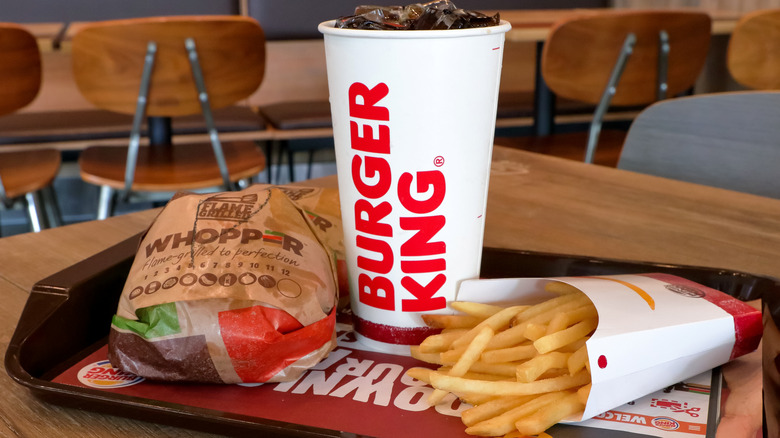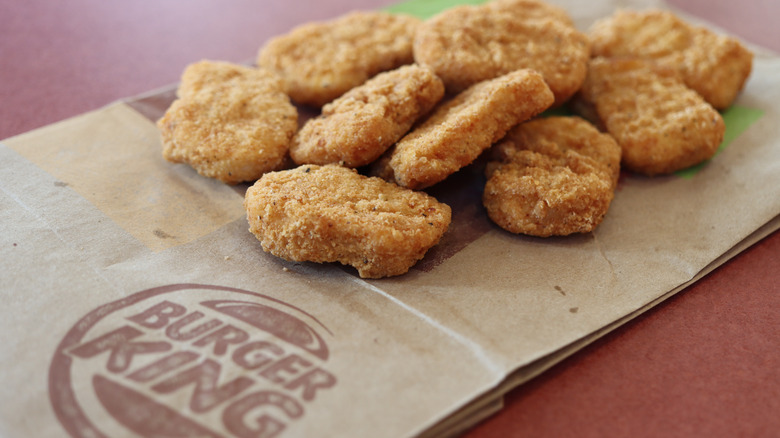Burger King Just Became More Expensive. Here's Why
If it feels like everything has gotten more expensive lately, it's not all in your head. Prices are skyrocketing, especially in the grocery and restaurant industry. Restaurant Business reported that in November of 2021, menu price inflation was the highest it had been in 39 years and was up 6% from the prior year. It's no surprise, considering that food costs were exploding, cooking oil cost nearly 40% more, the cost of chicken had seen a 36% increase, and beef prices jumped a whopping 41% in 2021. Something as simple as gloves is now a much more significant part of the cost to run a restaurant.
The Chief Procurement Officer for PPE of America, Sean Kelly, told SFGate, "Before Covid, you could buy a box (of nitrile gloves) for $3 – $6. Go on Amazon now, and you'll see the average price is $19 – $25, which is ludicrous." No one is immune to the effects of the supply chain disruptions that have been plaguing the industry. Restaurants are forced to raise their prices to offset the rising cost of food, labor, shipping, and other business costs that have inflated (via Reuters). McDonald's and Chipotle have already raised prices, with the Golden Arches projecting about a 6% overall price hike for 2021, according to CNN Business.
Inflation and food cost are driving prices up
Burger King is feeling the squeeze as well, just like your favorite neighborhood spots and other national chains. Food & Wine reports that Burger King has switched its 10-piece nuggets option out with eight-piece nuggets at more than 1,000 locations. The Whopper is another casualty, according to MarketWatch, and has been pulled from the discount menu and is no longer an eligible choice for the 2 for $5 or 2 for $6 promotional deals.
Citing an earnings call transcribed by FactSet, MarketWatch reported that the CEO of the United States' biggest Burger King franchisor (Carrols Restaurant Group) said that the cost of beef had increased by 33%, and hourly wages had risen by14%. Chief executive officer Daniel Accordino explained, "Commodity inflation overall was approximately 16% this past quarter compared to the prior year period." Accordino struck a somewhat optimistic tone, noting that while the company couldn't "predict when these inflationary cost pressures will end," the company expected them to lessen later in 2022. The CEO added, "We also intend to continue to move pricing to partially offset inflation to the extent possible without impacting traffic." So, unfortunately, these price increases might become more common.

